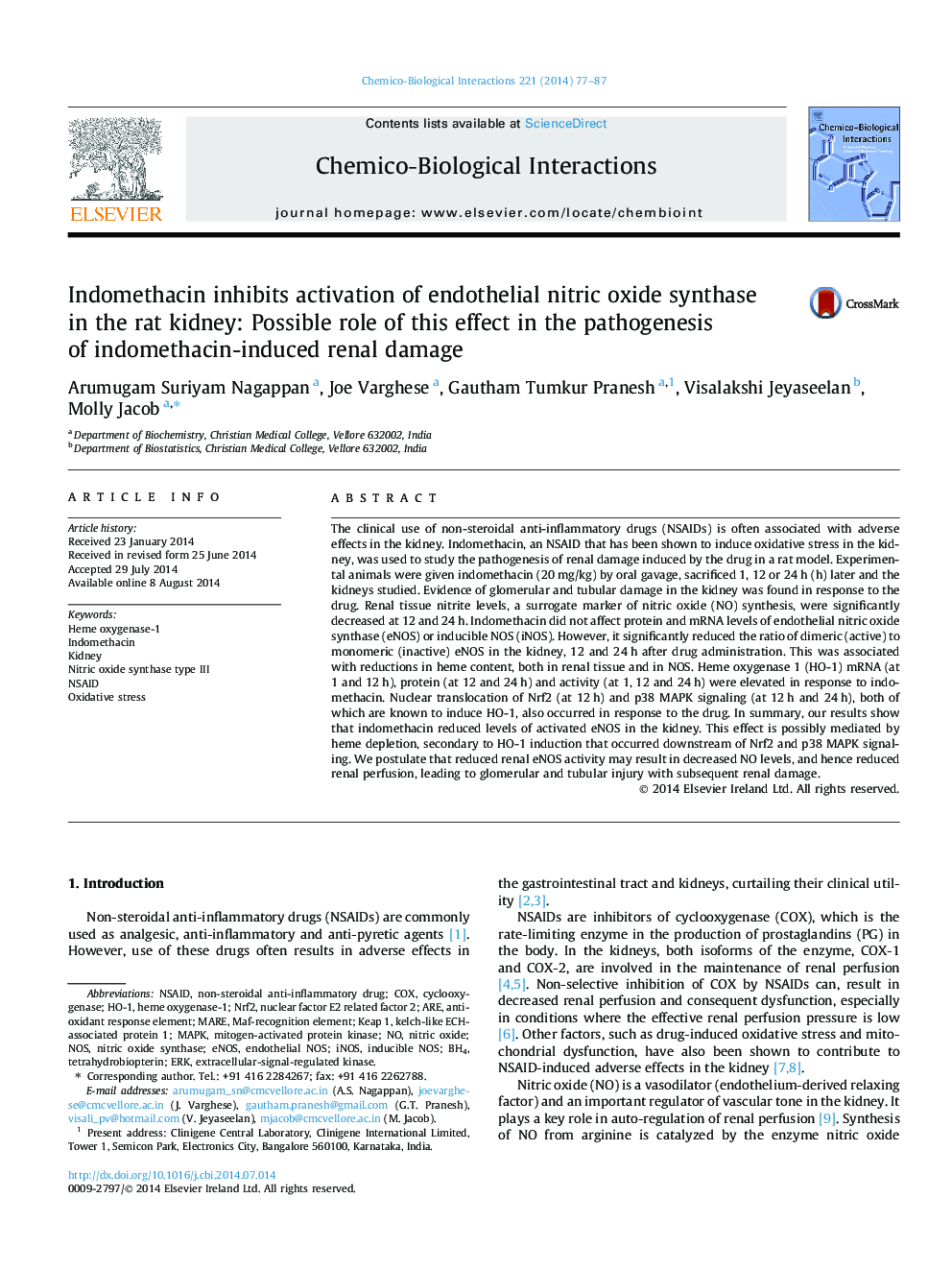| کد مقاله | کد نشریه | سال انتشار | مقاله انگلیسی | نسخه تمام متن |
|---|---|---|---|---|
| 2580406 | 1561620 | 2014 | 11 صفحه PDF | دانلود رایگان |

• Indomethacin administration induced tubular and glomerular damage in the kidney.
• Levels of the active dimeric form of eNOS, but not iNOS, were reduced.
• This was associated with induction of HO-1 and reduction in renal heme levels.
• Renal nitrite levels were decreased, indicating lowered NO production.
• Reduced NO levels may impair renal perfusion, leading to renal damage.
The clinical use of non-steroidal anti-inflammatory drugs (NSAIDs) is often associated with adverse effects in the kidney. Indomethacin, an NSAID that has been shown to induce oxidative stress in the kidney, was used to study the pathogenesis of renal damage induced by the drug in a rat model. Experimental animals were given indomethacin (20 mg/kg) by oral gavage, sacrificed 1, 12 or 24 h (h) later and the kidneys studied. Evidence of glomerular and tubular damage in the kidney was found in response to the drug. Renal tissue nitrite levels, a surrogate marker of nitric oxide (NO) synthesis, were significantly decreased at 12 and 24 h. Indomethacin did not affect protein and mRNA levels of endothelial nitric oxide synthase (eNOS) or inducible NOS (iNOS). However, it significantly reduced the ratio of dimeric (active) to monomeric (inactive) eNOS in the kidney, 12 and 24 h after drug administration. This was associated with reductions in heme content, both in renal tissue and in NOS. Heme oxygenase 1 (HO-1) mRNA (at 1 and 12 h), protein (at 12 and 24 h) and activity (at 1, 12 and 24 h) were elevated in response to indomethacin. Nuclear translocation of Nrf2 (at 12 h) and p38 MAPK signaling (at 12 h and 24 h), both of which are known to induce HO-1, also occurred in response to the drug. In summary, our results show that indomethacin reduced levels of activated eNOS in the kidney. This effect is possibly mediated by heme depletion, secondary to HO-1 induction that occurred downstream of Nrf2 and p38 MAPK signaling. We postulate that reduced renal eNOS activity may result in decreased NO levels, and hence reduced renal perfusion, leading to glomerular and tubular injury with subsequent renal damage.
Figure optionsDownload as PowerPoint slide
Journal: Chemico-Biological Interactions - Volume 221, 25 September 2014, Pages 77–87